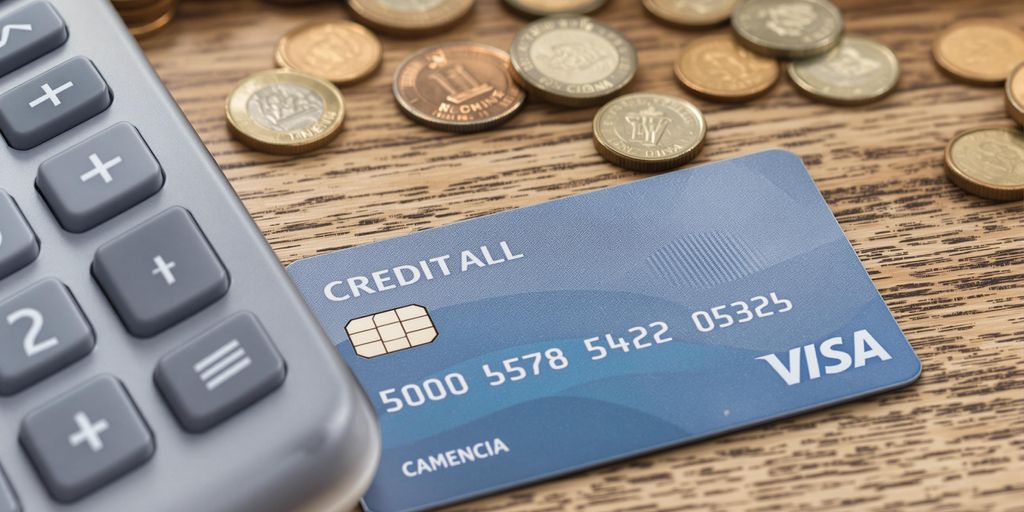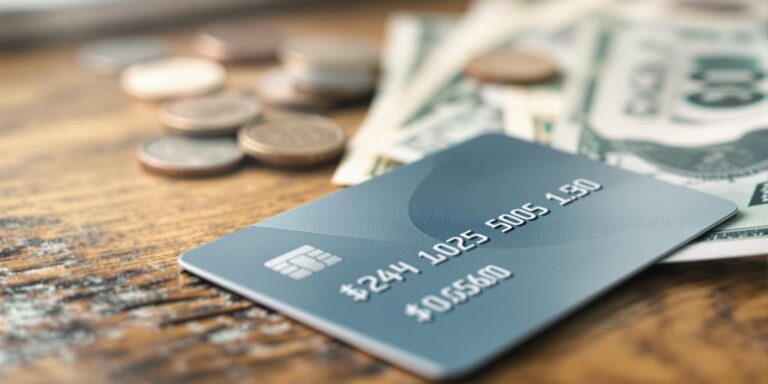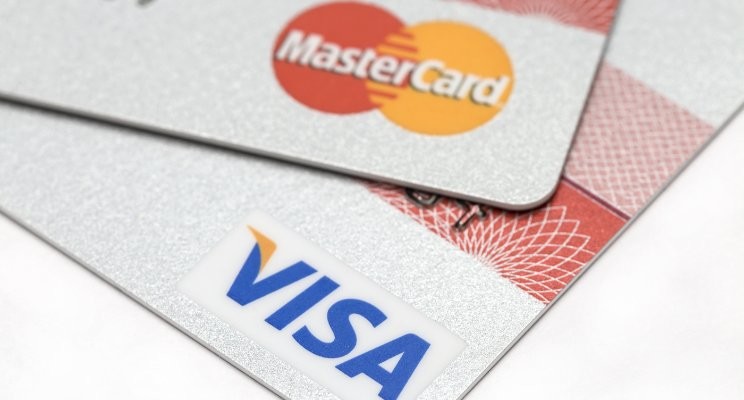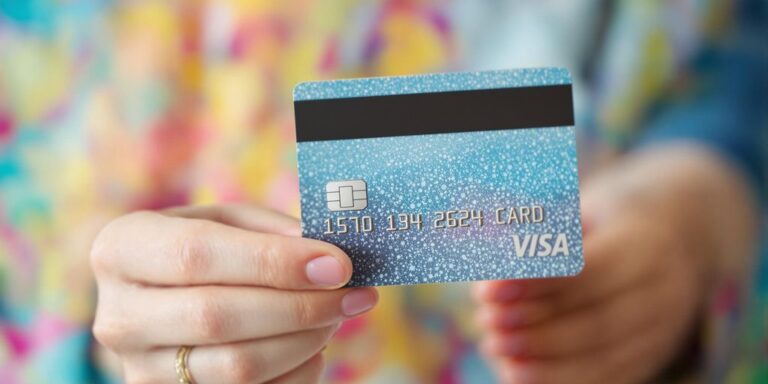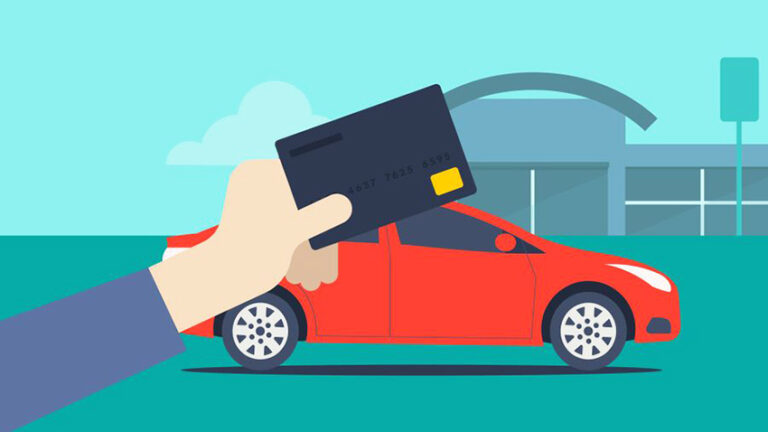How Credit Cards Can Affect Your Credit Score
Understanding how credit cards can affect your credit score is essential for managing your finances wisely. Many people use credit cards for everyday purchases, but not everyone realizes the impact these cards have on their credit health. This post will explain the different ways credit cards influence your credit score, including payment history, credit utilization, and account age. By grasping these concepts, you can make informed choices that improve your financial standing and pave the way for better credit opportunities in the future.
Understanding How Credit Cards Impact Your Credit Score
The Role of Credit Cards in Credit Scoring
Credit cards play a big part in shaping your credit score. They can either help you build a solid credit history or drag your score down if not used wisely. Your credit score is like a report card for your financial behavior, and credit cards are one of the most influential subjects. Credit scores are calculated based on several factors, including payment history, amounts owed, length of credit history, new credit, and types of credit used. Each of these factors is affected by how you use your credit cards.
How Credit Card Activity is Reported
When you use a credit card, your activity is reported to the major credit bureaus. This includes details like how much you spend, your payment history, and your credit limit. If you pay your bills on time and keep your balances low, it reflects positively on your credit report. However, missing payments or maxing out your cards can hurt your score. It’s important to understand that even applying for a new credit card can affect your score due to hard inquiries.
Key Factors Influenced by Credit Cards
- Payment History: This is the most significant factor in your credit score. Paying your credit card bill on time is crucial.
- Credit Utilization Rate: This is the ratio of your credit card balances to your credit limits. Keeping this rate below 30% is generally recommended.
- Length of Credit History: The longer you have your credit cards, the better it is for your score. This includes the age of your oldest account, the age of your newest account, and an average age of all your accounts.
- Types of Credit Used: Having a mix of credit types, such as installment loans and revolving credit, can benefit your score.
It’s essential to remember that credit cards can be a double-edged sword. Used wisely, they can help you build a strong credit profile. But misuse can lead to financial pitfalls.
Opening a New Credit Card: Immediate Effects on Your Credit Score

Hard Inquiries and Their Impact
When you apply for a new credit card, the issuer will perform a hard inquiry on your credit report. This is basically a credit check, and it can slightly ding your score. Usually, a single hard inquiry might drop your score by less than five points. However, these inquiries stick around on your report for two years, and if you go on a spree applying for multiple cards, those points can add up. It’s wise to space out applications to avoid a noticeable hit to your credit.
Changes in Credit Utilization
Adding a new credit card can actually help your credit utilization rate, which is a key part of your credit score. Credit utilization is the percentage of your total available credit that you’re using. So, if you add a card with a $5,000 limit, for example, and you don’t increase your overall spending, your utilization rate will drop. Lower utilization is good for your score, but it’s easy to get carried away with spending on a new card, which could backfire and increase your utilization.
Effects on Average Age of Accounts
Opening a new credit card can lower the average age of your credit accounts. If you’ve had credit for a long time, this might not be a big deal. But if you’re new to credit, it can have a bigger impact. The average age of your accounts is part of what makes up your credit history, and a longer history is generally better for your score. Over time, as your accounts age and you keep up with payments, the impact of a new card on this aspect will lessen.
Opening a new credit card can feel like a double-edged sword. While it may initially lower your credit score due to hard inquiries and a reduced average account age, it also offers the potential to improve your credit over time by increasing your available credit. Managing your new credit wisely is key to reaping the benefits.
Using Your Credit Card Wisely to Boost Your Credit Score
Importance of Payment History
When it comes to your credit score, payment history is king. This is the track record of how you’ve paid your bills over time, and it makes up about 35% of your credit score. Paying your credit card bill on time, every time, is one of the simplest ways to boost your score. Even if you can only pay the minimum amount due, it’s crucial to avoid late payments.
- Set up reminders or automatic payments to make sure you never miss a due date.
- Aim to pay off your balance in full each month to avoid interest charges.
- If you ever find yourself unable to make a payment, contact your card issuer to discuss options before it affects your credit report.
Managing Credit Utilization
Your credit utilization ratio is another big player in the credit score game. This is the percentage of your total credit limit that you’re using at any given time. Ideally, you want to keep this ratio below 30%. For instance, if your total credit limit across all cards is $10,000, try to keep your total balance below $3,000.
- Monitor your spending regularly to ensure you stay within this limit.
- Spread out your spending across multiple cards if necessary.
- Consider requesting a credit limit increase if you’re consistently close to the 30% mark, but be cautious of the temptation to spend more.
Benefits of Keeping Accounts Active
Keeping your credit card accounts open and active can also help improve your credit score. This is because the length of your credit history accounts for about 15% of your score. Even if you don’t use a particular card often, keeping it open can help maintain a longer average age of accounts.
Sometimes it might seem like a good idea to close a card you rarely use, but closing it could shorten your credit history and increase your credit utilization ratio, both of which can hurt your score.
If a card has no annual fee, consider keeping it open to benefit your credit score. However, if a card does have a fee and you don’t use it, it might be worth reevaluating whether the cost is justified.
The Consequences of Closing a Credit Card Account

Impact on Credit Utilization
When you shut down a credit card, you might not immediately realize how it affects your credit utilization. This is the ratio of your outstanding balances to your total credit limit. Closing a card reduces your total available credit, which can lead to a higher utilization rate. If your utilization rate jumps above 30%, it could negatively impact your credit score. For example, closing a credit card with a large credit limit can significantly impact your credit score by reducing your total available credit.
Effects on Credit History Length
Your credit history’s length is another factor that takes a hit when you close a credit card. The age of your accounts is important, and when you close an old card, it can eventually lower the average age of your accounts. This change doesn’t happen right away, as closed accounts stay on your credit report for up to 10 years. But when they do drop off, it can shorten your credit history, potentially lowering your score.
Potential Benefits and Drawbacks
Closing a credit card isn’t all bad. There are some benefits, like avoiding annual fees on a card you rarely use. However, you should weigh these against the drawbacks, like the potential negative impact on your credit score. Here’s a quick list to consider:
- Pros:
- Cons:
It’s a balancing act. Before deciding to close a card, consider if the pros outweigh the cons in your financial situation. Sometimes, it might be worth keeping the card open, especially if it doesn’t cost you anything.
How Credit Card Debt Influences Your Credit Score
Understanding Credit Utilization Ratio
Credit utilization ratio is a big deal in the credit world. It’s basically how much credit you’re using compared to how much you have available. If you’re maxing out your cards, it doesn’t look good. Keeping that ratio below 30% is often recommended. To figure it out, just add up all your card balances and divide by your total credit limits.
Risks of High Credit Card Balances
High balances can really mess with your credit score. When you owe a lot, lenders might think you’re living beyond your means. This can lead to higher interest rates on loans. Plus, a low score can make it harder to rent an apartment or even get a phone plan. It’s not just about the money—you don’t want to look risky to lenders.
Strategies to Manage Credit Card Debt
Managing debt isn’t easy, but it’s doable. Start by making more than the minimum payment each month. This helps chip away at the debt faster. Consider consolidating your debt onto a card with a lower interest rate. And definitely keep an eye on your spending habits. Here’s a quick list to help manage your debt:
- Pay more than the minimum each month.
- Consider a balance transfer to a card with lower interest.
- Track your spending and set a budget.
Even small changes in how you handle credit card debt can improve your credit score over time. Consistency is key.
For more on how different factors affect your credit, check out these key elements that play a role in shaping your score.
The Role of Payment History in Credit Scoring
Timely Payments and Credit Health
Payment history is a major part of your credit score, making up about 35% of it. This is all about whether you’ve been paying your bills on time. Lenders really like to see that you’re keeping up with payments. It’s like a trust thing; if you pay on time, they trust you more. Late payments, even just a few days, can mess things up. But if you’re more than 30 days late, it could really hit your score hard.
Consequences of Late Payments
When you’re late on a payment, it’s not just about a fee or a ding on your report. Late payments can stay on your credit report for up to seven years. This can make it harder to borrow money or get good interest rates. It’s like a scar on your credit history that takes a long time to heal. So, setting reminders or automatic payments can be a lifesaver.
Building a Positive Payment Record
To build a good payment history, consistency is key. Here’s a quick list to help:
- Set up automatic payments to ensure you’re never late.
- Keep track of your payment due dates in a calendar.
- Pay more than the minimum if you can, to reduce interest and show good financial habits.
Building a solid payment history isn’t just about paying on time; it’s about showing that you can manage your finances responsibly over time.
Understanding how your payment history affects your credit score is a big deal. It’s not just about numbers; it’s about showing lenders you can handle credit responsibly. Your credit score reflects your history, and payment history is a big piece of that puzzle.
Credit Utilization: A Key Component of Your Credit Score
Calculating Your Credit Utilization
Your credit utilization ratio is like a snapshot of how much credit you’re using compared to what you have available. To figure it out, just divide your total credit card balances by your total credit limits. For example, if you have $1,000 in balances on cards with a $5,000 limit, your utilization is 20%. Keeping this number low is key to maintaining a healthy credit score.
Optimal Utilization Rates
Most folks in the know say you should aim for a credit utilization rate below 30%. This tells lenders you’re not overly reliant on credit. But if you really want to shine, keeping it under 10% can be even better. It’s like showing off your ability to manage credit without maxing out your cards.
Impact of High Utilization on Scores
High credit card balances can increase your credit utilization ratio, which might hurt your credit score. If you’re constantly near your credit limit, it signals to lenders that you might struggle to repay. This is especially true if you’re new to credit or have only one card. On the flip side, spreading your spending across several cards can help keep individual utilization rates low, which might soften the impact a bit.
Managing your credit utilization is like walking a tightrope. You need to use enough credit to show activity, but not so much that you look risky to lenders. Balancing this can help you maintain a solid credit profile.
How Different Types of Credit Cards Affect Your Credit Score
Secured vs. Unsecured Credit Cards
When it comes to credit cards, the main distinction is between secured and unsecured cards. Secured credit cards require a cash deposit that acts as collateral, making them a safer bet for lenders. These cards are often a good starting point for those new to credit or looking to rebuild their credit history. On the other hand, unsecured cards don’t require a deposit and are more commonly offered to individuals with an established credit history. Using a secured card responsibly can help you transition to an unsecured card over time, improving your credit mix and boosting your score.
The Impact of Rewards Cards
Rewards cards can be tempting with their offers of cash back, miles, or points. However, it’s essential to use them wisely. Overspending to earn rewards can lead to high balances, which might negatively impact your credit utilization ratio. Keeping your spending in check is crucial. Consider the benefits, but always pay off your balance in full to avoid interest, which can negate any rewards earned.
Student and Starter Credit Cards
Student and starter credit cards are designed for those with limited credit history. These cards often come with lower credit limits and fewer rewards, but they offer an opportunity to build credit from scratch. By making timely payments and keeping balances low, young cardholders can start building a solid credit history. This early start can be beneficial in the long run, as a longer credit history is a positive factor in credit scoring.
Using different types of credit cards can help diversify your credit profile, which is one of the three types of credit that can influence your credit score. Always choose a card that matches your financial habits and needs.
Strategies for Responsible Credit Card Management
Setting and Sticking to a Budget
Creating a budget is essential when it comes to managing credit cards responsibly. Establish clear spending limits based on your income and expenses to avoid overspending. Make a list of all your monthly expenses, including your credit card payments, and allocate funds accordingly. This approach helps ensure you have enough money to cover all your bills and avoid unnecessary debt.
Monitoring Your Credit Reports
Regularly checking your credit report is a smart move to keep tabs on your financial health. You can spot errors or signs of fraud early by reviewing your report. It’s also a good way to track your progress over time.
- Obtain free credit reports from major bureaus annually.
- Look for discrepancies or unfamiliar accounts.
- Report any inaccuracies immediately to the credit bureau.
Avoiding Common Credit Card Pitfalls
Many people fall into traps that can hurt their credit scores. Here are some things to watch out for:
- Missing payments: Always pay at least the minimum due on time to avoid late fees and penalties.
- Maxing out cards: Keep your credit utilization low, ideally below 30% of your total credit limit.
- Applying for too many cards at once: Each application can slightly lower your credit score due to hard inquiries.
Staying disciplined with your credit card usage requires effort, but the rewards of maintaining a healthy credit score are worth it. Making timely payments and managing your credit utilization can significantly boost your financial standing over time.
The Long-Term Effects of Credit Card Usage on Your Credit Score

Building a Strong Credit History
Over time, using your credit card responsibly can help build a solid credit history. A consistent record of on-time payments is crucial, as payment history is a major component of your credit score. Even if you only pay the minimum amount due, doing so on time each month can positively impact your credit score. Plus, maintaining an account over several years shows lenders that you can manage credit effectively.
Maintaining Low Credit Utilization
Your credit utilization ratio is another important factor in your credit score. This ratio compares your credit card balances to your credit limits. Keeping this ratio low, ideally below 30%, can enhance your credit score. In fact, those with the highest scores typically maintain a utilization rate below 10%. A high credit utilization ratio can negatively impact credit scores, making lenders cautious about applicants. Lowering this ratio can lead to an improvement in credit scores.
The Importance of Diverse Credit Mix
Having a variety of credit types, such as credit cards, mortgages, and auto loans, can benefit your credit score. This diversity shows lenders that you can handle different types of credit responsibly. While credit cards are just one piece of the puzzle, they play a significant role in showcasing your ability to manage revolving credit.
Over the years, how you manage your credit cards can either boost or drag down your credit score. It’s not just about having credit but using it wisely and keeping an eye on those key factors that can sway your score one way or the other.
How Applying for Multiple Credit Cards Can Affect Your Score
Understanding Hard Inquiries
When you apply for a credit card, the issuer checks your credit report, which usually results in a hard inquiry. Each hard inquiry can shave off a few points from your credit score, though the impact is often temporary. However, if you apply for multiple cards in a short time, these inquiries can add up, potentially causing a more noticeable dip in your score. It’s like a ripple effect; one stone doesn’t make much of a splash, but toss in several, and suddenly you’ve got waves.
Timing Your Applications Wisely
Applying for several credit cards at once might seem like a smart move to maximize rewards, but it’s worth spacing them out. Consider waiting at least six months between applications. This strategy not only helps avoid a cluster of hard inquiries but also gives your credit score time to recover and stabilize.
Balancing Multiple Credit Accounts
Having multiple credit cards can be a double-edged sword. On one hand, it can help you manage your credit utilization effectively by spreading out your spending across different cards. On the other hand, keeping track of various due dates and balances can become challenging. If not managed well, it might lead to missed payments or high balances, which could negatively affect your credit score. A helpful tip is to set up automatic payments or reminders to keep everything in check.
It’s important to remember that credit cards are tools, and like any tool, they can be beneficial or harmful depending on how you use them. Having multiple cards isn’t inherently bad, but managing them responsibly is key to maintaining a healthy credit score.
The Impact of Becoming an Authorized User on a Credit Card

Benefits for Credit Building
Becoming an authorized user on someone else’s credit card can be a smart move for building your credit. When you’re added as an authorized user, the primary cardholder’s payment history and account details show up on your credit report. This can help you establish a credit history and potentially improve your credit score without having to open a new account yourself.
Here’s why it can be beneficial:
- Shared Payment History: If the primary cardholder has a strong history of on-time payments, this positive record can reflect on your credit report, boosting your score.
- Increased Credit Limit: The additional credit line can lower your overall credit utilization, which is a key factor in credit scoring.
- No Responsibility for Debt: As an authorized user, you can benefit from the account’s history without being responsible for the debt.
Potential Risks and Considerations
While there are clear benefits, there are also risks to consider:
- Negative Impact from Poor Management: If the primary cardholder misses payments or racks up high balances, it could negatively impact your credit score.
- Limited Control: You have no control over how the account is managed since you’re not the primary cardholder.
- Account Closure: If the primary cardholder decides to close the account, you lose the associated credit history.
How It Affects the Primary Cardholder
For the primary cardholder, adding an authorized user can be a generous gesture but comes with its own set of considerations:
- Increased Responsibility: The primary cardholder is responsible for all charges made by the authorized user.
- Potential Credit Score Impact: If the authorized user overspends or makes late payments, it could affect the primary cardholder’s credit.
Becoming an authorized user is a great way to start building credit, but it’s crucial to choose a primary cardholder who manages their credit responsibly. This partnership can be mutually beneficial if approached with care and understanding.
Wrapping It Up: Credit Cards and Your Credit Score
So, there you have it. Credit cards can be a double-edged sword when it comes to your credit score. Use them wisely, and they can help you build a solid credit history. But if you’re not careful, they can also drag your score down. It’s all about balance. Pay your bills on time, keep your balances low, and don’t go overboard with new applications. Remember, your credit score is more than just a number—it’s a reflection of your financial habits. So, treat it with care, and it’ll serve you well in the long run.
Frequently Asked Questions
How do credit cards affect my credit score?
Credit cards can impact your credit score through your payment history, credit utilization, and the length of your credit history. Using them responsibly can help improve your score.
What happens when I open a new credit card?
Opening a new credit card can cause a small drop in your credit score due to a hard inquiry. However, it can also help by increasing your total available credit.
Why is paying my credit card bill on time important?
Paying on time is crucial because your payment history makes up a large part of your credit score. Late payments can lower your score significantly.
How does credit utilization affect my score?
Credit utilization is the ratio of your credit card balances to your credit limits. Keeping it low, ideally below 30%, is good for your credit score.
Does closing a credit card hurt my credit score?
Closing a credit card can affect your score by reducing your available credit and possibly shortening your credit history, which might lower your score.
Can using a credit card help build my credit?
Yes, using a credit card responsibly by making timely payments and keeping a low balance can help build a positive credit history and improve your score.
What is a hard inquiry?
A hard inquiry occurs when a lender checks your credit report for a loan or credit card application. It can slightly lower your credit score temporarily.
How can I manage my credit cards wisely?
To manage credit cards wisely, pay your bills on time, keep balances low, and monitor your credit report regularly to avoid errors.

